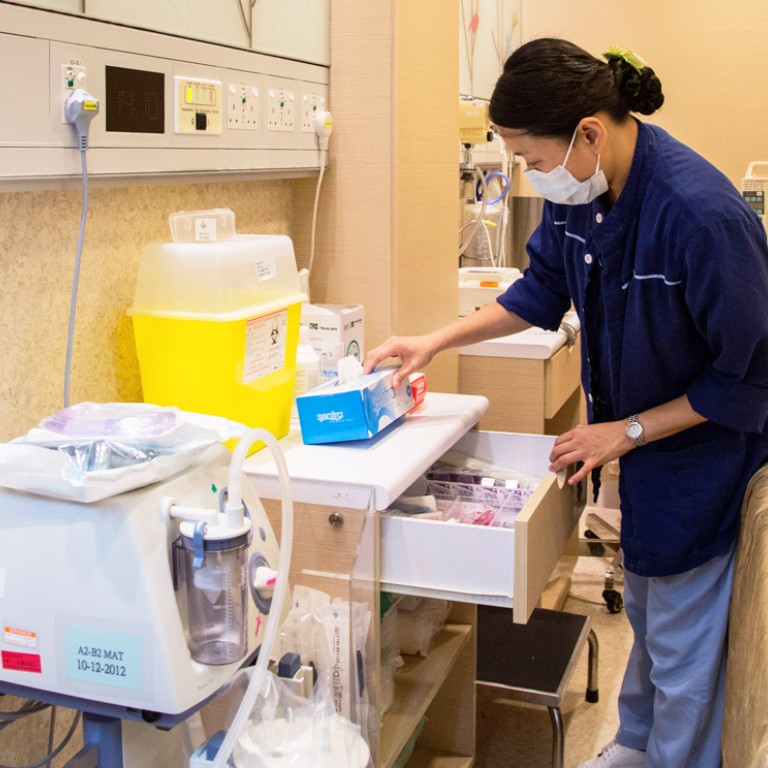
70 pc of beds at city's first private teaching hospital 'affordable care for Hongkongers'
Chinese University's medical centre , due to open in 2019, will reserve most beds for permanent residents with prices aimed at middle class
Hopes are growing that the city's first private teaching hospital will provide the most attractive alternative to overburdened public facilities after it pledged to devote 70 per cent of its inpatient beds to affordable care exclusively reserved for Hong Kong permanent residents.
The HK$6.3 billion hospital - due to open in 2019 - has also committed to take up to 17,600 referred specialist outpatient cases and 6,600 new day surgery cases from the Hospital Authority every year, accounting for 10 per cent of its total capacity.
This is the vision of social responsibility for the non-profit project run by the Chinese University of Hong Kong spelled out by Professor Fung Hong, the hospital's executive director.
With the hospital due to provide 600 beds and serve about 250,000 people every year, the remaining 30 per cent of inpatient beds, in single or two-person rooms, will be more costly and open to non-local patients.
"We hope to relieve the pressure on the public health care sector. The package charges are aimed to be affordable to the middle class, [aimed] at the lower end of the price range in the private market. But there is no guarantee that the charges [will be] as inexpensive as hoped by some people," he told the .

Fung pledged the care package pricing would be transparent, specifying costs, care and related services so patients had a clear picture.
But construction of the 14-storey hospital next to the University MTR station, will not start until after the Legco Finance Committee approves a HK$4.033 billion government loan in the summer.
The loan will be interest-free for the first five years with the hospital making repayments at a floating rate for the next 10 years, resulting in an estimated HK$533 million in interest forgone by the government. The trade off is the hospital committing to take cases referred from public hospitals.
The biggest challenge faced by the hospital is to secure enough medical staff - about 190 doctors and 600 nurses for full operation. But Fung is confident enough staff can be hired from the private sector and among the newly retired. Some 45 doctors and 100 nurses will be required during the first year of operation. The university also hopes to fast-track applications for advanced treatment and technology through the hospital, to be named the Chinese University of Hong Kong Medical Centre.
"We hope to bridge the gap between the private and public health care sectors and meet the needs of Hong Kong people," Fung said.
"Some advanced and clinically proven medical treatments or technologies usually need to go through a drawn-out bureaucratic process before being introduced to public hospitals.
"But private hospitals can respond to patients' needs very quickly by bringing in new technologies without going through the hassle of bureaucracy," Fung said.
Such advanced treatment includes liquid biopsy technology, a breakthrough developed by Professor Dennis Lo Yuk-ming, the university's associate dean of medicine, by applying DNA sequencing techniques to early-stage cancer detection.

